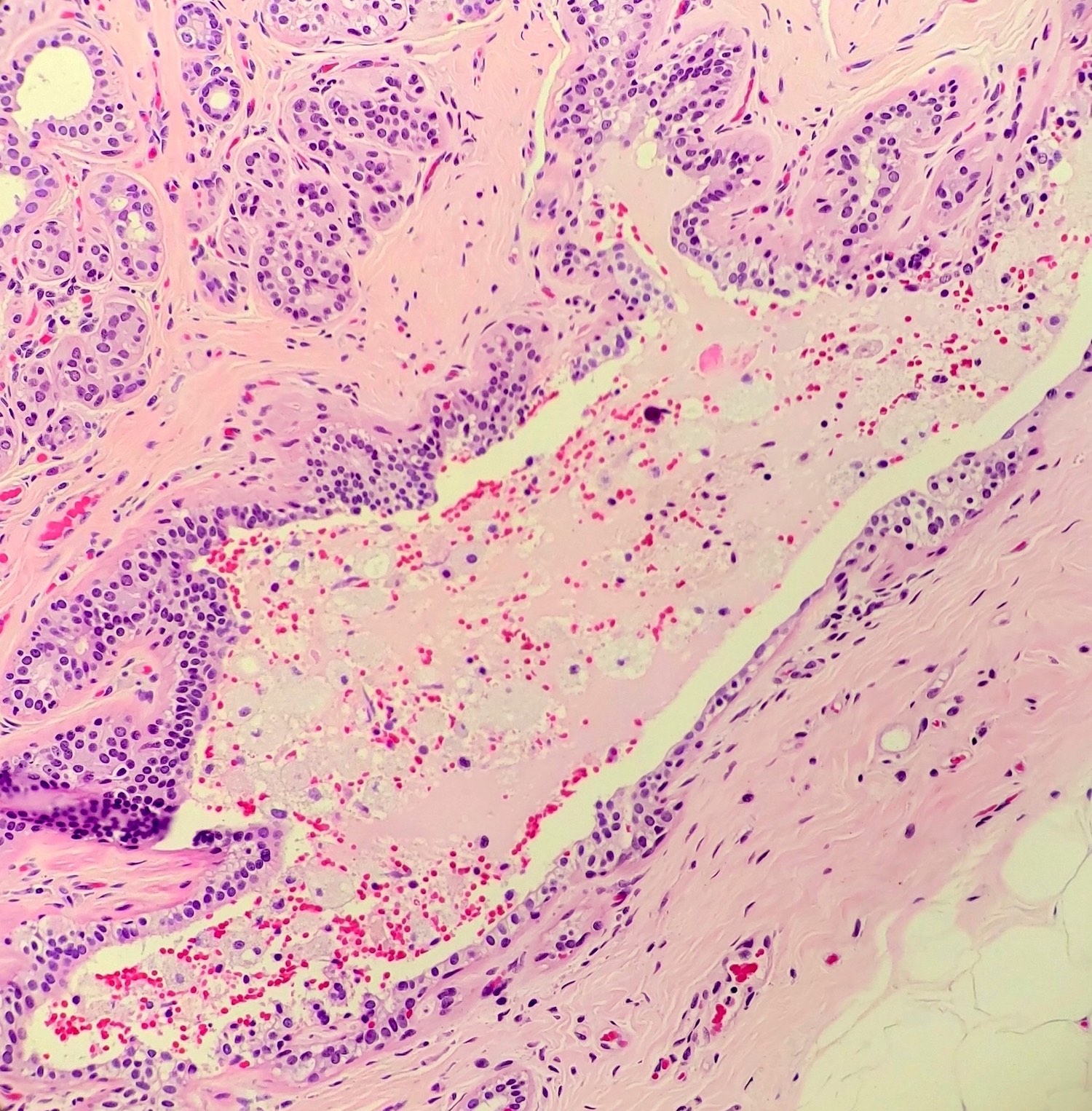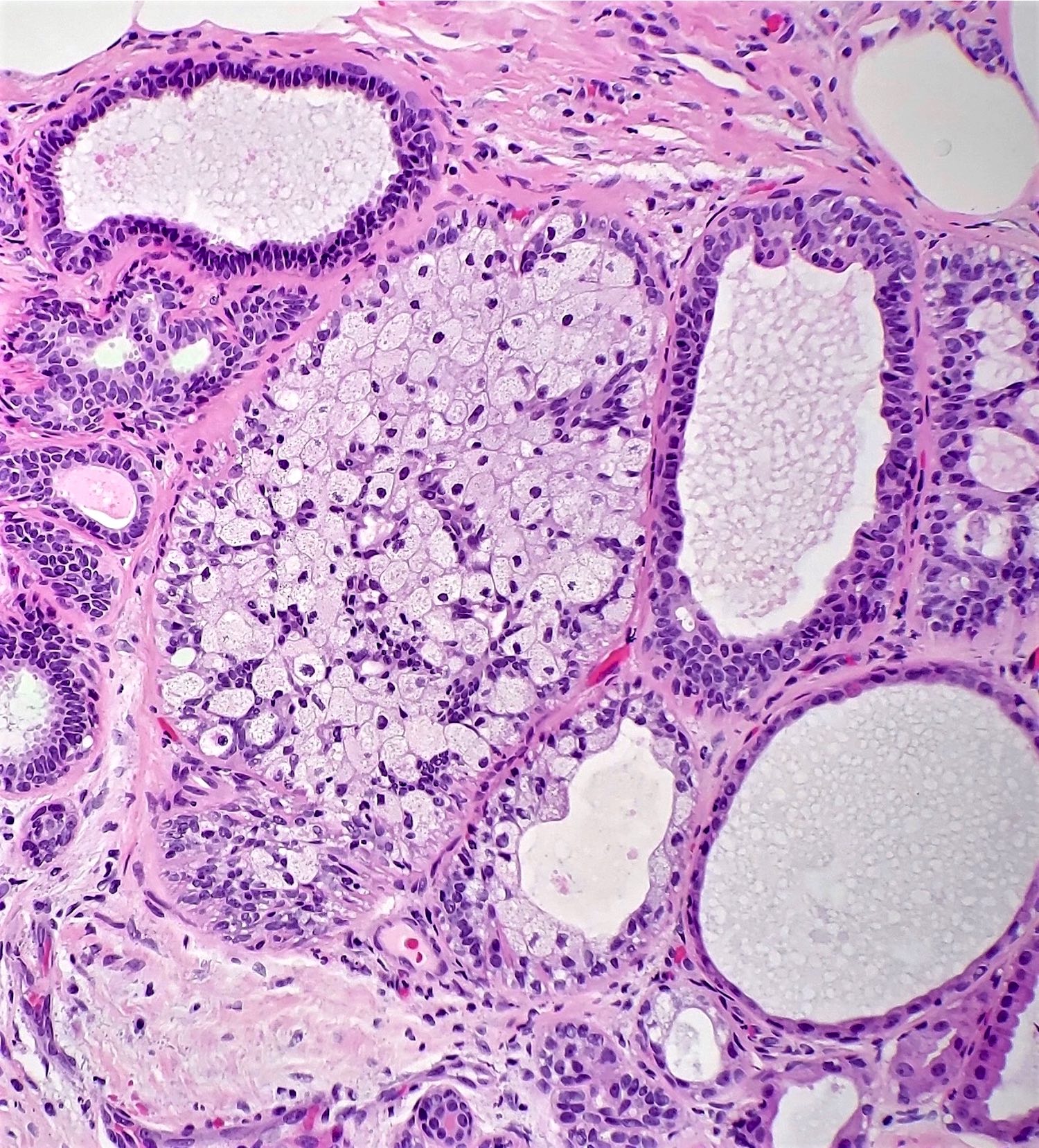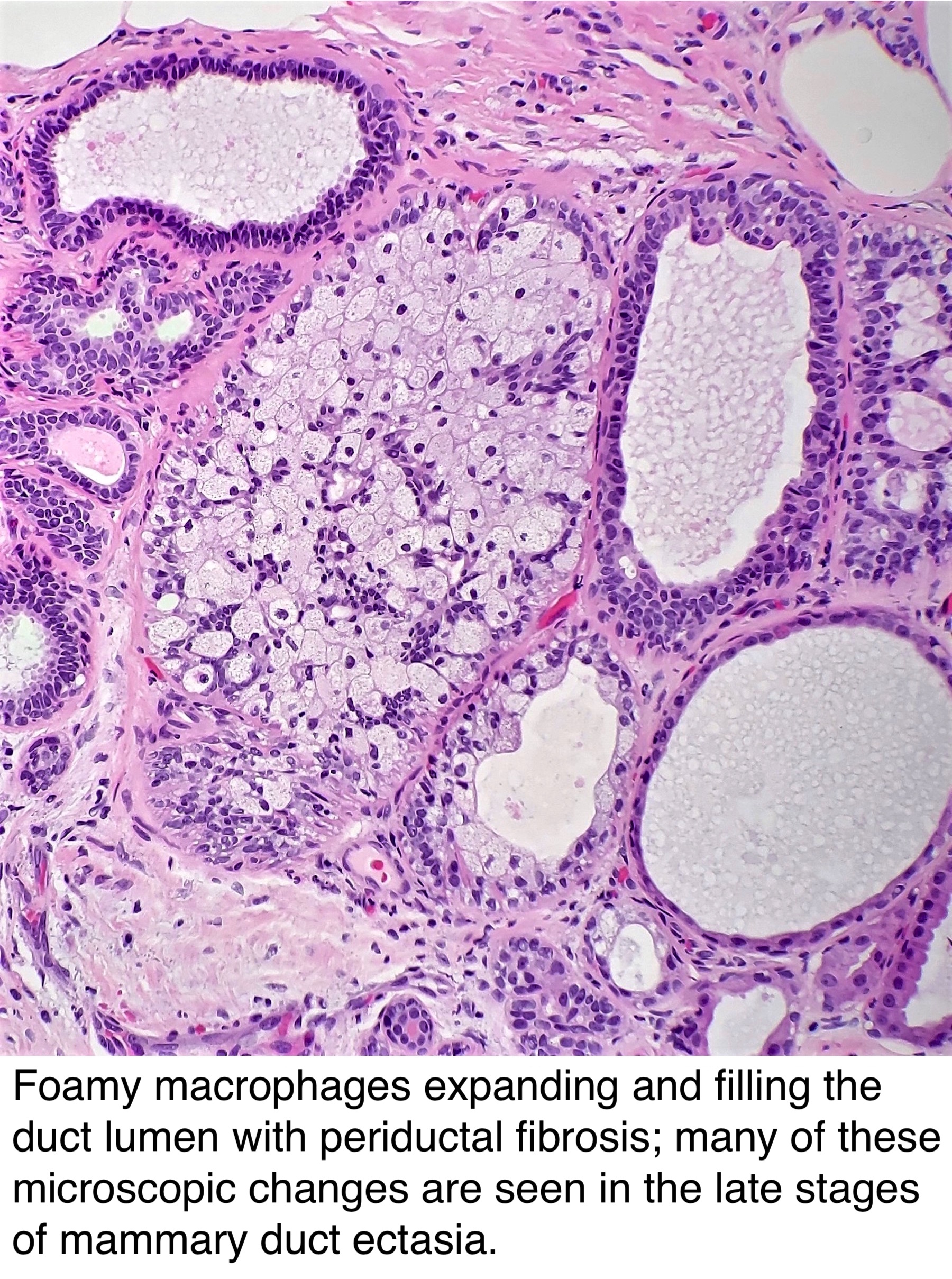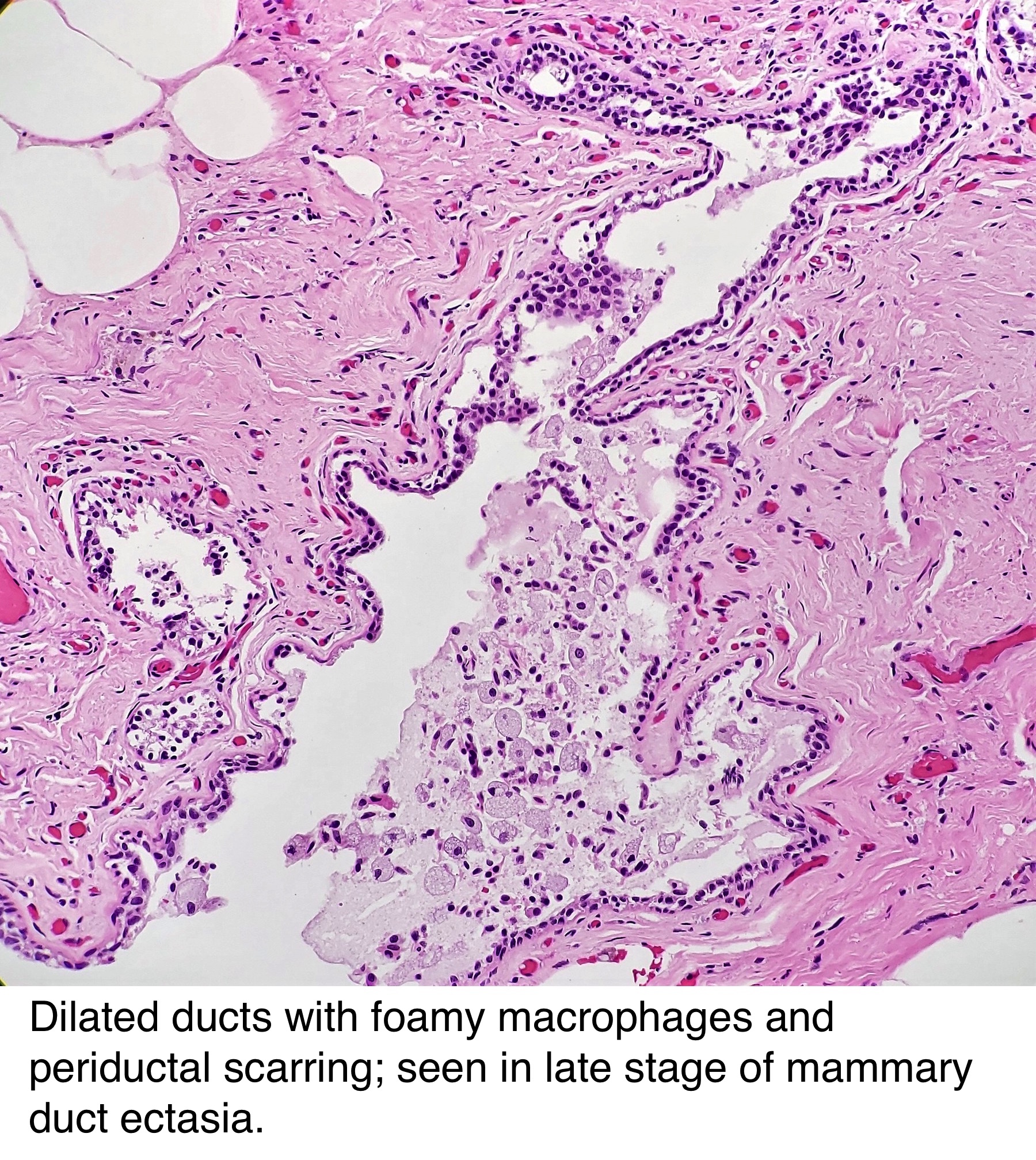Mammary Duct Ectasia Discharge Color
Mammary Duct Ectasia Discharge Color - The color of the discharge is variable, it may be greenish in color, yellowish in color or sometimes blood stained, bloody nipple discharge may be. Signs of duct ectasia can include nipple retraction, inversion, pain, [5] and various intermittent couloring discharge (ranging from white, to. This isn’t always the case. The most prevalent symptom, which may be thick and sticky, and can range in color from white to. Some people with mammary duct ectasia have a thick, gooey nipple discharge. Others notice a red spot. Mammary duct ectasia is the abnormal widening of one or more breast ducts to greater than 2 mm diameter, or 3 mm at the. Mammary duct ectasia occurs when one or more milk ducts beneath the nipple becomes wider (dilated). The duct may also fill.
Others notice a red spot. The most prevalent symptom, which may be thick and sticky, and can range in color from white to. Mammary duct ectasia is the abnormal widening of one or more breast ducts to greater than 2 mm diameter, or 3 mm at the. This isn’t always the case. Signs of duct ectasia can include nipple retraction, inversion, pain, [5] and various intermittent couloring discharge (ranging from white, to. Mammary duct ectasia occurs when one or more milk ducts beneath the nipple becomes wider (dilated). The duct may also fill. Some people with mammary duct ectasia have a thick, gooey nipple discharge. The color of the discharge is variable, it may be greenish in color, yellowish in color or sometimes blood stained, bloody nipple discharge may be.
The color of the discharge is variable, it may be greenish in color, yellowish in color or sometimes blood stained, bloody nipple discharge may be. Signs of duct ectasia can include nipple retraction, inversion, pain, [5] and various intermittent couloring discharge (ranging from white, to. The duct may also fill. Mammary duct ectasia is the abnormal widening of one or more breast ducts to greater than 2 mm diameter, or 3 mm at the. Others notice a red spot. Some people with mammary duct ectasia have a thick, gooey nipple discharge. This isn’t always the case. The most prevalent symptom, which may be thick and sticky, and can range in color from white to. Mammary duct ectasia occurs when one or more milk ducts beneath the nipple becomes wider (dilated).
Pathology Outlines Duct ectasia
The most prevalent symptom, which may be thick and sticky, and can range in color from white to. Some people with mammary duct ectasia have a thick, gooey nipple discharge. This isn’t always the case. The color of the discharge is variable, it may be greenish in color, yellowish in color or sometimes blood stained, bloody nipple discharge may be..
Pathology Outlines Duct ectasia
Others notice a red spot. The most prevalent symptom, which may be thick and sticky, and can range in color from white to. Some people with mammary duct ectasia have a thick, gooey nipple discharge. Mammary duct ectasia occurs when one or more milk ducts beneath the nipple becomes wider (dilated). The duct may also fill.
Pathology Outlines Duct ectasia
This isn’t always the case. Mammary duct ectasia is the abnormal widening of one or more breast ducts to greater than 2 mm diameter, or 3 mm at the. Some people with mammary duct ectasia have a thick, gooey nipple discharge. The duct may also fill. The color of the discharge is variable, it may be greenish in color, yellowish.
Hormones and Breast Discharge Causes of Different Colors
Mammary duct ectasia is the abnormal widening of one or more breast ducts to greater than 2 mm diameter, or 3 mm at the. Mammary duct ectasia occurs when one or more milk ducts beneath the nipple becomes wider (dilated). The color of the discharge is variable, it may be greenish in color, yellowish in color or sometimes blood stained,.
Duct Ectasia Histology
Signs of duct ectasia can include nipple retraction, inversion, pain, [5] and various intermittent couloring discharge (ranging from white, to. The most prevalent symptom, which may be thick and sticky, and can range in color from white to. Mammary duct ectasia is the abnormal widening of one or more breast ducts to greater than 2 mm diameter, or 3 mm.
mammary duct ectasia (breast duct ectasia) 네이버 블로그
The duct may also fill. The color of the discharge is variable, it may be greenish in color, yellowish in color or sometimes blood stained, bloody nipple discharge may be. Signs of duct ectasia can include nipple retraction, inversion, pain, [5] and various intermittent couloring discharge (ranging from white, to. Mammary duct ectasia occurs when one or more milk ducts.
Duct Ectasia Histology
The duct may also fill. Signs of duct ectasia can include nipple retraction, inversion, pain, [5] and various intermittent couloring discharge (ranging from white, to. Others notice a red spot. The color of the discharge is variable, it may be greenish in color, yellowish in color or sometimes blood stained, bloody nipple discharge may be. Mammary duct ectasia is the.
Pathology Outlines Duct ectasia
Some people with mammary duct ectasia have a thick, gooey nipple discharge. The most prevalent symptom, which may be thick and sticky, and can range in color from white to. Mammary duct ectasia is the abnormal widening of one or more breast ducts to greater than 2 mm diameter, or 3 mm at the. Mammary duct ectasia occurs when one.
Mammary duct ectasia in a 2yearold boy presenting with bloody nipple
The most prevalent symptom, which may be thick and sticky, and can range in color from white to. The duct may also fill. This isn’t always the case. Mammary duct ectasia is the abnormal widening of one or more breast ducts to greater than 2 mm diameter, or 3 mm at the. Others notice a red spot.
Pathology Outlines Duct ectasia
Some people with mammary duct ectasia have a thick, gooey nipple discharge. Mammary duct ectasia occurs when one or more milk ducts beneath the nipple becomes wider (dilated). The duct may also fill. The color of the discharge is variable, it may be greenish in color, yellowish in color or sometimes blood stained, bloody nipple discharge may be. Signs of.
The Duct May Also Fill.
The color of the discharge is variable, it may be greenish in color, yellowish in color or sometimes blood stained, bloody nipple discharge may be. The most prevalent symptom, which may be thick and sticky, and can range in color from white to. Signs of duct ectasia can include nipple retraction, inversion, pain, [5] and various intermittent couloring discharge (ranging from white, to. Others notice a red spot.
Some People With Mammary Duct Ectasia Have A Thick, Gooey Nipple Discharge.
Mammary duct ectasia is the abnormal widening of one or more breast ducts to greater than 2 mm diameter, or 3 mm at the. Mammary duct ectasia occurs when one or more milk ducts beneath the nipple becomes wider (dilated). This isn’t always the case.
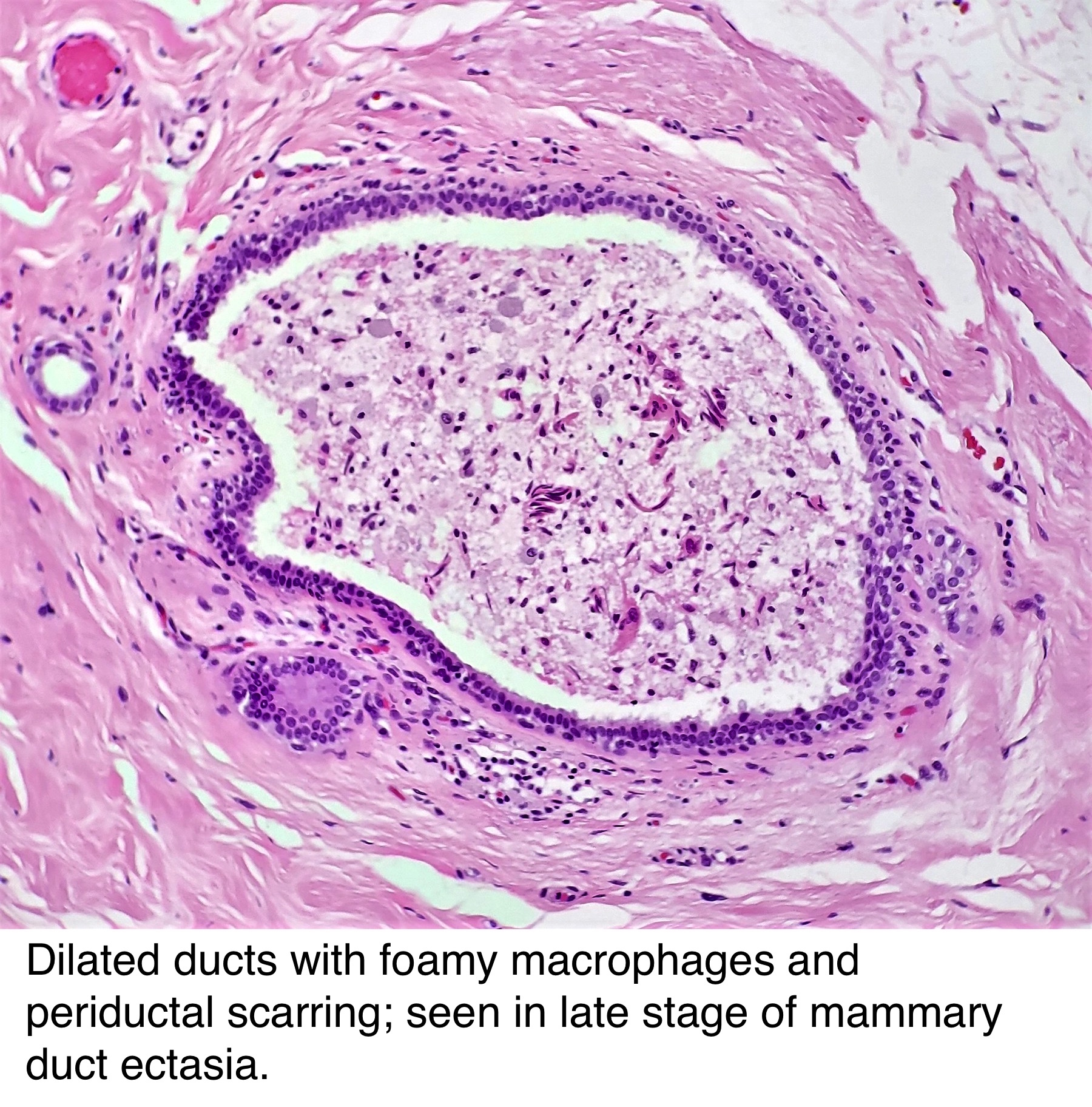
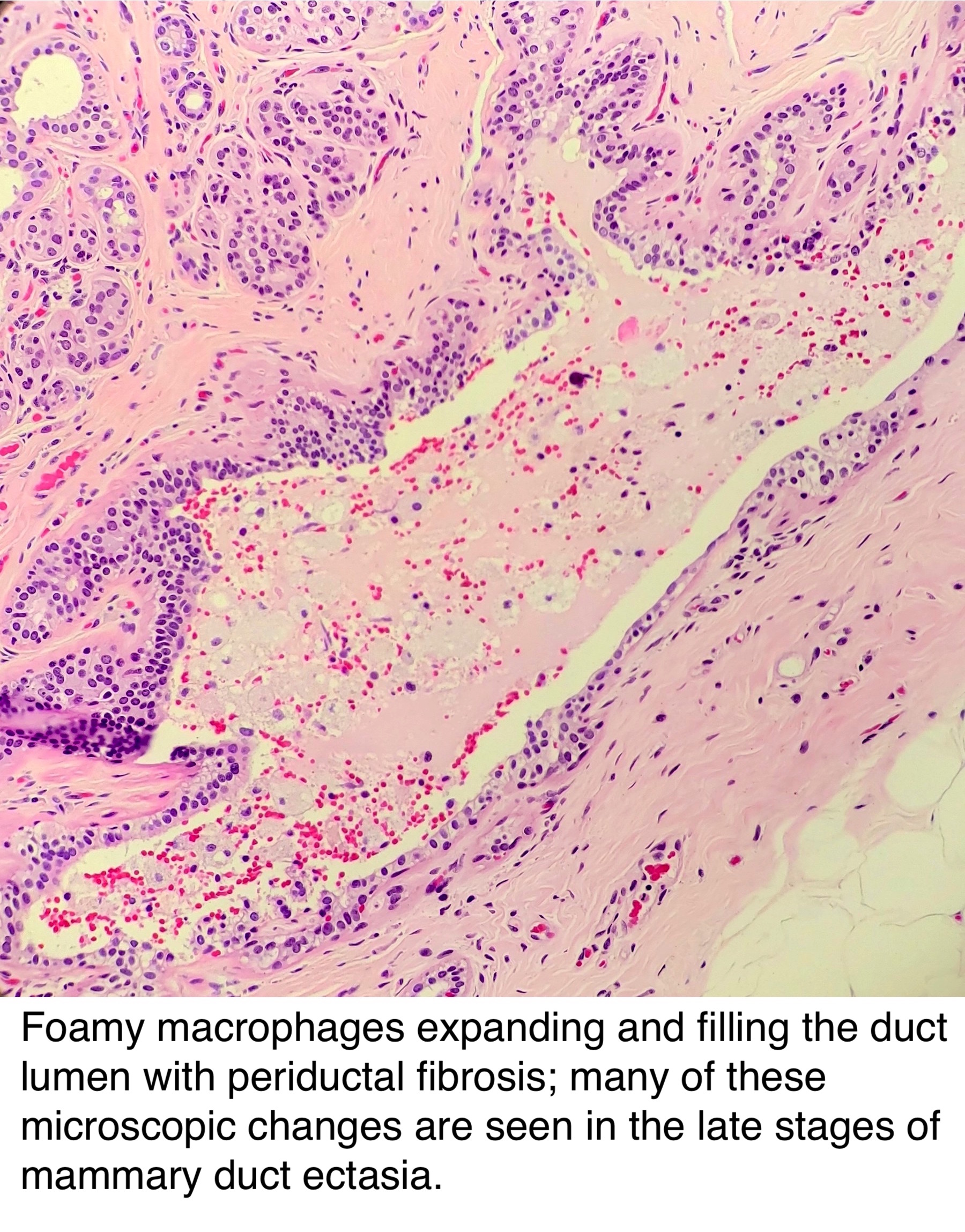
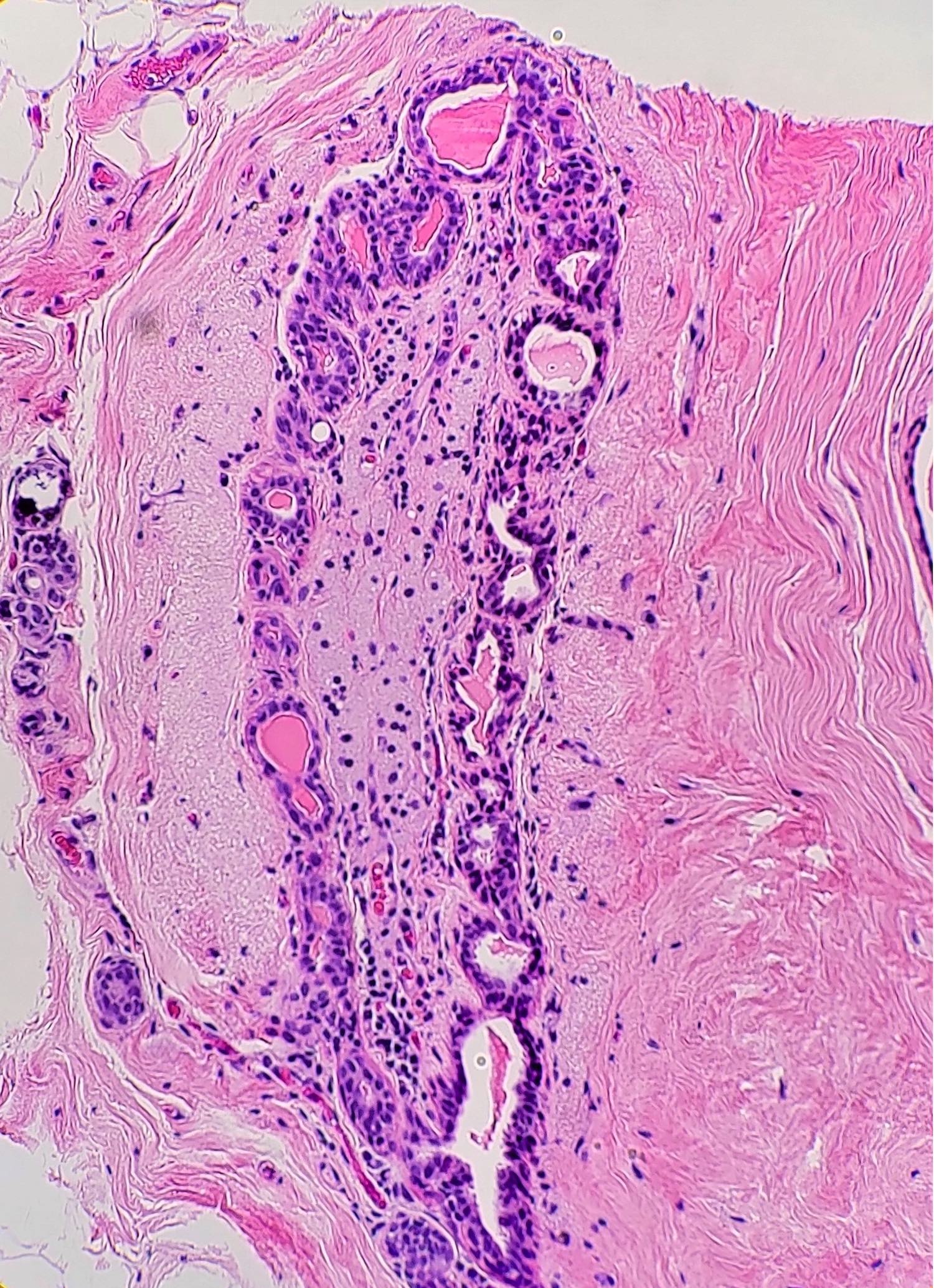
:max_bytes(150000):strip_icc()/benign-nipple-discharge-430412-v12-94c4dc13284d4445b1f386892bbf4be4.png)
